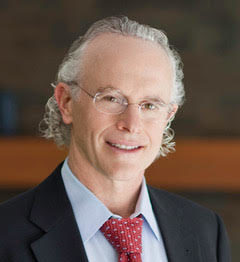
More than 1,200 nursing homes could find themselves facing stringent financial reporting requirements if a national movement to increase transparency in the industry takes root in California.
A bill requiring owners of skilled nursing facilities to file annually consolidated financial reports that show how they’re spending state funds — and with whom — is up for a critical vote in the state Assembly Tuesday, just weeks after passing the state Senate on a 34-3 bipartisan vote.
Under SB 650, any organization operating a licensed SNF would have to file information from all its “operating entities, license holders and related parties” that provide services, buildings or supplies. The measure defines a related party as any other company in which the SNF owner has at least a 5% controlling interest.
“Transactions between related parties total multiple billions of dollars in any given year,” state Sen. Henry Stern (D-27), the bill’s sponsor, said during a virtual press conference Monday. “We have very little idea about whether those transactions are actually being taken in a way that is fair, that prices aren’t being inflated, that money isn’t being wasted or that profits aren’t being unjustly pocketed.”
While the pandemic has brought increased attention to the role of private ownership in the skilled nursing industry nationwide, concern in California has been growing steadily since the mid-2010s. In 2018, the state auditor reviewed the business practices of three large, private nursing home operators. She found Brius Healthcare, the largest, reported roughly $5 million in pass-throughs in 2016 when it claimed a shortfall of the same amount due to staffing. Brius also was the target of a Washington Post investigative piece on related parties in late 2020.
Officials at Brius, which previously inspired similar regulatory measures in the state, could not be reached to comment on the proposed law Monday.
This bill is backed by AARP California, as well as SEIU 2015, which represents about 20,000 nursing home workers in the state. But it has raised concerns among provider groups, who argue that it could be a costly compliance nightmare for well-intentioned operators. California’s own Office of Statewide Health Planning and Development also has criticized the bill, calling its efforts duplicative because operators must already provide regular profit and loss statements.
Calls seeking comment from the California Association of Health Facilities weren’t immediately returned.

Michael Wasserman, M.D., a geriatrician and past president of the California Association of Long Term Care Medicine, said he has supported the bill since its inception.
“The way the industry has been structured, the operators will always complain they don’t have enough money,” said Wasserman, who co-authored a Health Affairs blog on transparency in February. “Before we give more money to the nursing homes, shouldn’t we see if there’s accountability? If all we’re doing is propping up real estate owners and medical supply companies, is that really the goal of skilled nursing?”
Wasserman said many providers are quietly supporting the legislation, adding that costs would be minimal for small facilities without complex financial relationships.
“The good actors are not bothered by it, and nor should they be,” he added. “It’s aimed at the bigger groups, and it’s disingenuous for them to complain about the cost. When you look at the amount of money we’re talking about, the cost of transparency, it’s negligible.”
Groundwork for next steps
Tony Chicotel, staff attorney for Califonia Advocates for Nursing Home Reform, said the new law would hit all operators and owners and make key relationships more visible, providing better insight into how money flows than the current one-report-per-licensee requirement.
“The industry capitalizes on an asymmetry of information. Nursing homes know their costs, they know their profits, and the state simply doesn’t,” Chicotel said, calling the current data “to some extent, garbage.”
That, proponents said, is especially worrisome as the state embarks on an expansion of its Medicaid program, known as Medi-Cal, with spending slated to hit $115 billion in 2022. Nursing homes got a 2021 increase of 3.5%, a 2022 calendar year increase of 2.4%, and another 10% rate increase to cover COVID-related costs for PPE, infection control and hazard pay.
Taking a cue from officials in New York and Connecticut who recently tied Medicaid increases to staffing or direct care requirements, Chicotel said he would like to see more reliable financial reporting as the basis for mandating spending thresholds for patient care.
“We are now about to undertake the largest investment ever in skilled nursing care and in Medi-Cal in the state’s history,” Stern added. “We’re going to be spending billions and billions more dollars to make sure our caregivers are taken care of … and that people in our nursing facilities are treated like human beings and not like cogs on a profit and loss sheet …. Those dollars are so, so needed on the frontline.”
If passed, the law would become effective Jan. 1, 2023.




